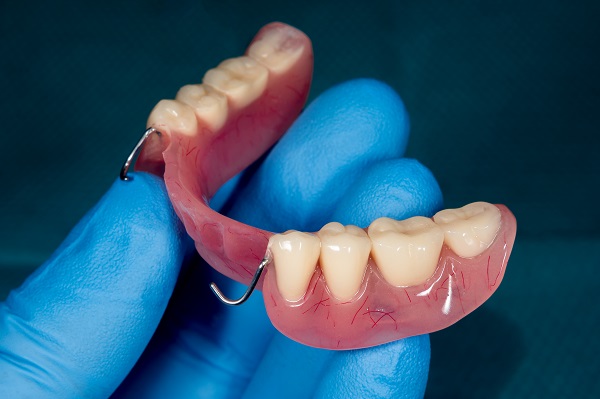Partial Dentures: A Comprehensive Overview

Many individuals anticipate the need for dentures as they age. However, tooth loss can affect anyone for a variety of other reasons, from decay to injury to disease. There are many dental procedures that can help replace a missing tooth, especially if one or more healthy teeth remain in the mouth. For many people, partial dentures are an excellent choice and restore the look and function of real teeth. The removable apparatus is often made from acrylic and reinforced with metal in order to withstand biting, chewing and other natural movements of the mouth. It fits alongside the remaining healthy teeth for a complete and natural look.
The recommended candidates for partial dentures
It is important not to ignore gaps caused by tooth loss. Over time, the remaining teeth can shift, leading to unsightly and uncomfortable malocclusion. There are other methods to replace missing teeth, including implants and bridges. These options are a more permanent solution than dentures, as they are made to last close to 15 years or longer. However, they can be much more expensive and do require invasive installation procedures. In addition, patients must have healthy gums, teeth and jawbones for these methods to be worthwhile.
Partial dentures are an economical choice and are often covered by the average dental insurance plan. They do not require extensive preparation or invasive and painful dental work, making them a good option for those who want to save money or are anxious about visiting the dentist. However, it is important to note that partials must typically be replaced every five years due to normal wear and tear.
Individuals suffering from tooth loss whose remaining teeth and gums may not be strong or healthy are also good candidates for partials. This can include the elderly, those with severe decay or gum disease, or previous smokers and tobacco users.
Wearing and caring for partials
Partial dentures should be worn during the day and removed at night to prevent damage from clenching or grinding during sleep. This also allows for proper cleaning while giving the gums and jaw a rest from the device. Partials are made to wear while eating but may require an adjustment period before enjoying hard, crunchy or chewy foods. Extremely tough or sticky foods may damage dentures and cause them to slip out of place and should be avoided.
It is important to thoroughly clean partial dentures every night by brushing and then soaking in an approved solution to prevent buildup and kill germs. Partial denture users should remember to clean every area of the mouth once the device has been removed as well.
Conclusion
While partial dentures may not be the appropriate solution for every case of tooth loss, many individuals benefit from cosmetic and practical improvements when choosing this method. With the proper use and care, partials can help patients enjoy a functional full set of teeth. Regardless of what method is chosen to handle tooth loss, it is critical to see a dentist promptly for evaluation and treatment.
Request an appointment here: https://www.drroberttamaki.com or call Dr. Robert B Tamaki, DDS at (310) 402-0156 for an appointment in our Los Angeles office.
Check out what others are saying about our dental services on Yelp: Partial Dentures in Los Angeles, CA.
Related Posts
A denture reline is a normal part of wearing dentures. Relines are needed to fix ill-fitting dentures. You experience bone loss when you wear dentures, and eventually, that will cause the dentures to fit poorly. The reline adjusts the shape of the dentures, so they fit once again. Most people need a reline every two…
If you are missing either one or multiple teeth, you may want to ask your dentist if a partial denture is suitable for you. A beautiful smile can say a lot about you. When you meet someone for the first time, the first feature they may notice is your smile. There are several reasons a…
You likely know that a denture is not meant to be permanent. You will have to get dentures replaced from time to time over the years. Dentures typically last for 5-8 years. Once the time is up, you will need to get your dentures replaced. Learn why dentures only last for 5-8 years and what…
Dentures are a very common reality for a wide population of people. We all want to keep our natural teeth for as long as possible, but that is not an option in some cases. A person can need replacement teeth for a variety of reasons. You could have a medical condition that caused your teeth to…
